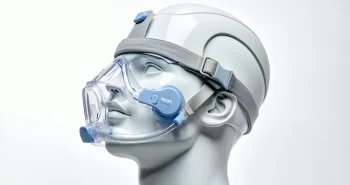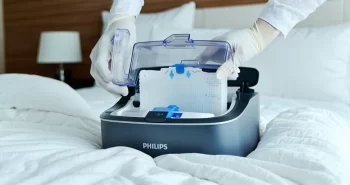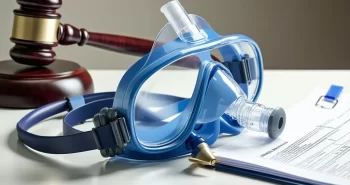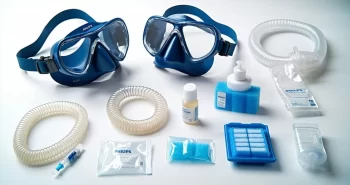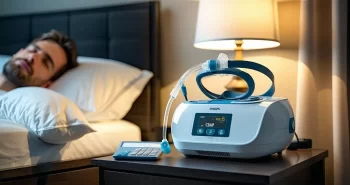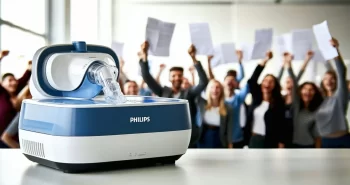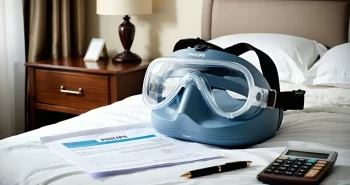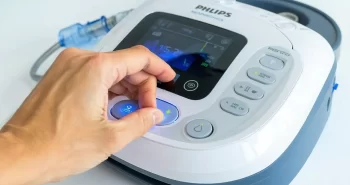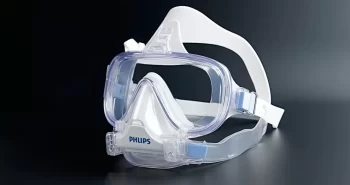Philips CPAP Supplies and Legal Rights Explained

If you are looking for Philips CPAP supplies and want to protect your legal rights, this page explains how to verify parts, document your device, and explore potential compensation for recalled units. Legal steps are important if your device was part of the Philips CPAP recall. Here, you’ll learn how to confirm supplier reliability and gather records for possible claims.
Philips CPAP supplies may be linked to recalled devices. If you used a recalled model, documenting your equipment and usage can support a legal claim.
Table of Contents:
Document CPAP Supplies for Legal Records
I quickly realized that it is important to verify the current status of your Philips device before placing any order. If you are unsure whether your CPAP machine is on the recall list, you can review official information on the Philips website or speak with a healthcare provider. Some steps I found helpful include:
- Getting the exact model number: This helps confirm whether your device is among those recalled.
- Asking a respiratory therapist for guidance: Medical professionals often know which suppliers follow the latest safety advisories and recall protocols.
- Checking the manufacturing date: If the CPAP unit was made during certain production cycles, it may or may not be affected by the recall.
After confirming your device, gather records of all supplies and accessories used. These documents are important for potential legal action. Official Philips-authorized vendors must meet specific criteria, typically including compliance with federal regulations and updated recall policies. I found that some vendors prominently display a “Philips Authorized” label on their websites or store signage.
To further validate a supplier’s reliability, I look for third-party accreditations such as whether the vendor is accredited by the Joint Commission or the Accreditation Commission for Health Care. These certifications indicate that the supplier adheres to healthcare industry standards.
Record Supplier Details for Your Claim
Durable medical equipment (DME) stores in your area can be a dependable source for Philips CPAP supplies. I spoke with a local store manager who explained that these retailers generally partner with major manufacturers and often employ respiratory therapists who can guide you on what parts or accessories fit your model.
When I visited my local DME shop, staff checked my CPAP device details and made sure the supplies I needed—like tubing, headgear, and filters—matched my prescription. The personal interaction was helpful, especially if you want immediate answers about potential recalls. However, some locations might carry limited stock due to recent supply chain challenges. It is wise to call ahead and verify they have Philips-compatible inventory.
Prices at brick-and-mortar suppliers can sometimes be higher than online outlets, so I suggest comparing costs. Still, the advantage of in-person support often justifies any slight price difference. If you prefer to speak with someone who understands Philips recalls in detail, going to a local DME store might be the best route.
Gather Online Purchase Records for Legal Use
Online medical supply retailers and large e-commerce websites usually stock a range of CPAP equipment, including masks, filters, and hoses. I found that the variety of Philips CPAP supplies available online can exceed what I see in physical stores. Searching by device model usually helped me filter out incompatible items.
Although online shopping is convenient, I discovered a few points to watch for:
- Seller reputation: Not all online listings offer authentic equipment. Look at consumer reviews and ensure that the retailer is recognized for selling official or adequately tested CPAP parts.
- Return and refund policies: Because sizing or recall concerns might arise, you need a vendor with a friendly return policy.
- Prescription requirements: Some sellers ask you to upload or confirm a valid prescription before checking out. This step is normal, and it is meant to keep you safe by ensuring you have an appropriate medical device.
I also reviewed shipping times, as some online retailers experience delays on specialized CPAP parts. I learned that reading product descriptions thoroughly—particularly for disclaimers about recalled foam—is essential. While many listings are up-to-date, I stumbled upon a few that did not mention the recall at all. If you are ever in doubt, you can contact the seller or consult Philips’ official resource pages.
Verify Device Documentation for Legal Action
Another avenue I explored was going straight to Philips. In some regions, Philips manages its own online store or directs you to affiliated distributors who handle warranty or replacement requests. If you are dealing with recalled machines, the company may provide repair or replacement services directly. Though timelines have varied, I’ve seen announcements that Philips is working through a backlog of recall-related claims.
Going this route can be helpful because Philips’ customer support often has the most up-to-date details on newly approved foam solutions and recommended maintenance procedures. However, lead times for replacements can be lengthy, meaning you might need to buy interim supplies. In such cases, I still recommend verifying that any short-term parts you order elsewhere are safe and compatible.
Track Coverage for Potential Claims
While I was researching suppliers, I took some time to understand my health insurance benefits. Many insurance plans cover CPAP supplies, especially if you have a prescription. However, eligibility for coverage usually involves:
- Frequency of replacement: Insurance providers set guidelines on how often you can replace masks, headgear, and filters.
- Approved suppliers: Some insurers rely on in-network DME companies or specific online medical equipment platforms.
- Prior authorization: You may need a doctor’s note if you are switching from an older model to a newer one, even if it is within the Philips brand.
If you have encountered health issues that you suspect link to a faulty Philips device, discuss this with your insurer. They may have dedicated channels for product recalls, guiding you on next steps like machine replacements or coverage for repairs. I have found that recorded phone calls with your insurer, referencing your policy number, can speed up the process of verifying coverage.
Document Recall Notices and Actions
I noticed that reliable sources, such as the FDA or respiratory health advocacy groups, regularly release statements to keep consumers updated. Monitoring these official channels helps you stay ahead of important recalls or any newly reported issues. In my conversations with local healthcare professionals, they echoed the importance of transparency.
“Replacing or repairing a device with potential foam degradation is critical for patient comfort and safety,” said a respiratory therapist I consulted when checking if my machine was compromised. This clinician’s view reflected what the FDA emphasized in official announcements: if you suspect that your CPAP has limited functionality or could expose you to foam particles, take immediate action.
It also helps to routinely inspect your CPAP device. At least once a month, I check the tubing and examine my mask cushion for any discoloration or foam residue. If anything looks off, I notify my doctor or the equipment provider. For those who want to learn more about replacement parts and accessories, Philips CPAP headgear is a good starting point to see how different product lines can be adapted or replaced.
Understand legal recourse
As I delved deeper into recall details, I discovered that ongoing legal actions might impact those who experienced severe side effects. For instance, certain individuals who used recalled Philips CPAP machines claim that foam breakdown led to respiratory or other health complications. If that resonates with your situation, you may want to explore your legal options.
I found helpful information at the Philips CPAP lawsuit resource. It offers free case reviews to help determine whether you might qualify for compensation. This can be vital if you have incurred medical bills or if you have faced prolonged workplace absences due to complications. Although final settlements can take time, researching how to join an action can help you stay informed of your rights.
If you are specifically wondering about the financial side of a potential lawsuit, you can read more on how much will I get from the Philips CPAP settlement. Some people have had concerns about covering new CPAP supply costs while still seeking compensation for damages. If you choose to partner with a Philips CPAP lawyer, they may direct you to medical device experts who can bolster your case, or they might consult with your doctor to evaluate your medical records.
Prepare Records and Explore Legal Eligibility
My own journey to find Philips CPAP supplies taught me that it is essential to verify part authenticity, stay informed about the recall, and factor in potential legal remedies if your health has been affected. Here are a few final tips that helped me streamline the process:
- Document your device details: Note the model, serial number, and manufacturing date. This helps any vendor or lawyer confirm whether you have a recalled model.
- Keep receipts and medical records: If you suspect harm from a recalled CPAP, these records can help your insurer and any legal action you might pursue.
- Consult multiple sources: Compare local DME shops, online retailers, and Philips’ authorized channels to locate what you need within your budget and safety expectations.
- Check recall status often: When the recall is still being resolved, new guidance or updated repair programs may emerge.
In the end, my main focus was to address my own health and comfort while ensuring I was using the most current guidance on CPAP safety. By confirming that my supplies are genuine and by researching my rights if something goes wrong, I gained more peace of mind. If you suspect a recalled Philips machine has caused any health issues, you can take advantage of a free case review through Legal Claim Assistant to see whether you could be eligible for compensation.
I hope these insights offer clear, fact-based direction on how to buy Philips CPAP supplies responsibly. Always consult your healthcare provider and trusted specialists to navigate recalls, stay current on device upgrades, and protect your well-being.

